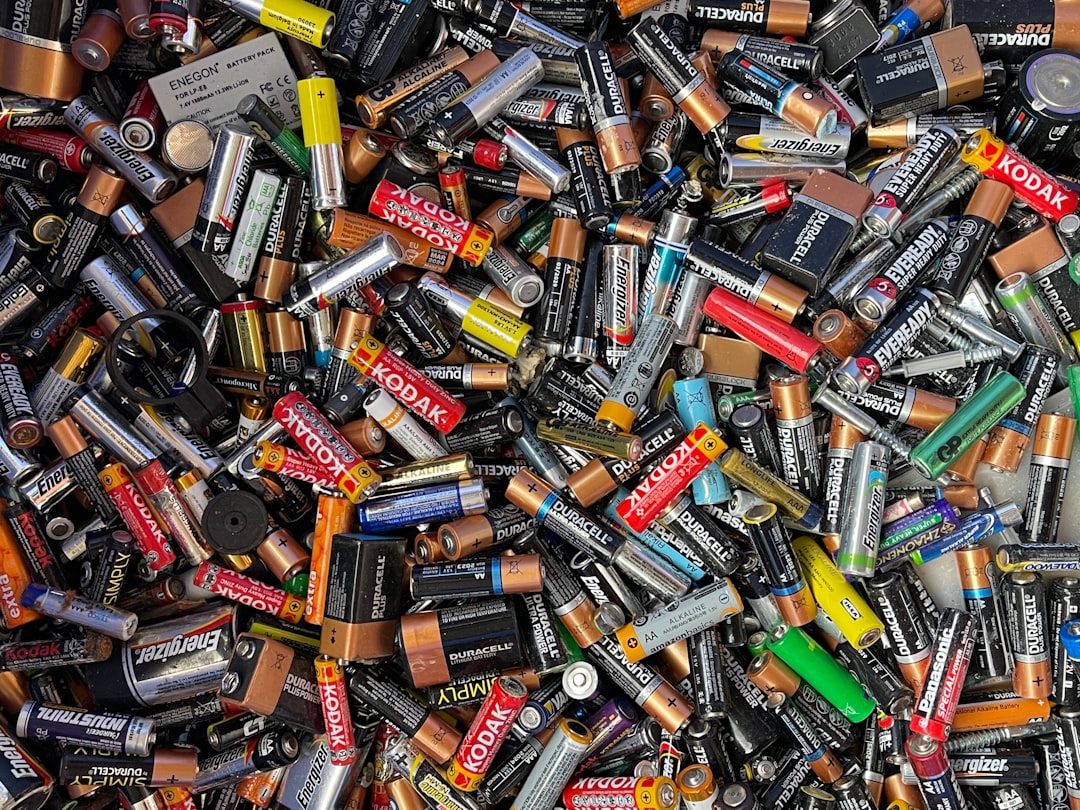Introduction
American Battery Technology Company (NASDAQ: ABAT) is an integrated critical battery materials developer based in Reno, Nevada. Founded in 2011, the company combines primary battery mineral manufacturing with secondary lithium-ion battery recycling. Its technologies aim to establish a domestic closed-loop supply chain for battery metals, supporting electrification in automotive and energy storage markets.
Corporate Structure
ABAT is a publicly traded company with headquarters in Reno and employs between 51 and 200 staff, according to its LinkedIn profile. The company’s operations encompass research and development, commercial recycling facilities, and primary mineral extraction projects. Strategic partnerships include collaborations with feedstock suppliers, engineering firms, national laboratories, and academic institutions.

Battery recycling by John Cameron
Recent Developments and News
On September 23, 2024, the U.S. Department of Energy awarded ABAT a $150 million federal grant to construct its second commercial-scale lithium-ion battery recycling facility, designed to process approximately 100,000 tonnes of battery materials per year. In April 2025, the company transitioned its first facility near McCarran, Nevada, from commissioning to continuous 24/7 operations, doubling its quarterly output of recycled battery materials. A contract to sell a 12-acre legacy property in Fernley, Nevada, for $6.75 million is expected to close by July 10, 2025, with proceeds allocated for advancing high-purity battery-grade metal production. Additionally, ABAT has completed all baseline environmental and technical studies for its Tonopah Flats Lithium Project and submitted reports under the National Environmental Policy Act to the U.S. Bureau of Land Management.
Financial and Strategic Analysis
As of October 16, 2025, ABAT shares closed at $6.13, reflecting a 31.51% decline over the past year on the NASDAQ. Daily trading volume was 2,105,123 shares, compared to a three-month average volume of 8,537,903. Intraday market capitalization stood at $591.41 million. The company has no reported forward or trailing P/E ratio, given its negative earnings per share of –$0.58 (TTM).
Key financial metrics (TTM or most recent quarter):
| Metric | Value |
|---|---|
| Revenue | $4.29 million |
| Net Income | –$46.76 million |
| Total Cash | $7.47 million |
| Total Debt/Equity | 11.38% |
| Free Cash Flow | –$21.72 million |
| Price/Sales | 93.79 |
| Price/Book | 8.38 |
| Enterprise Value/Revenue | 137.98 |
The company continues to rely on U.S. Department of Energy grants and tax credits—totaling over $190 million since 2021—to fund facility construction and technology development. Operating losses and limited organic cash flow underline the necessity of federal support and strategic partnerships to scale recycling capacity and advance primary mineral projects.
Market Position and Industry Context
ABAT operates within a growing U.S. battery recycling sector that benefits from Inflation Reduction Act incentives and infrastructure funding. Its proprietary low-temperature chemical extraction processes differentiate it from conventional smelting or shredding methods. Competitors include Redwood Materials and Li-Cycle, both also supported by government loans or grants. Domestic electrification targets and supply-chain security initiatives are driving increased demand for recycled battery feedstock and locally produced lithium products. ABAT’s dual focus on recycling and primary claystone-to-lithium processing is intended to address near-term feedstock needs and longer-term mineral supply challenges.
tl;dr
On September 23, 2024, ABAT secured a $150 million DOE grant for its second recycling facility. By April 2025, its first Nevada plant reached continuous 24/7 operations with doubled output, and a July 2025 land sale is projected to fund the next phase of battery-grade metals production. Completion of NEPA baseline studies advances the Tonopah Flats Lithium Project toward pre-feasibility and construction.